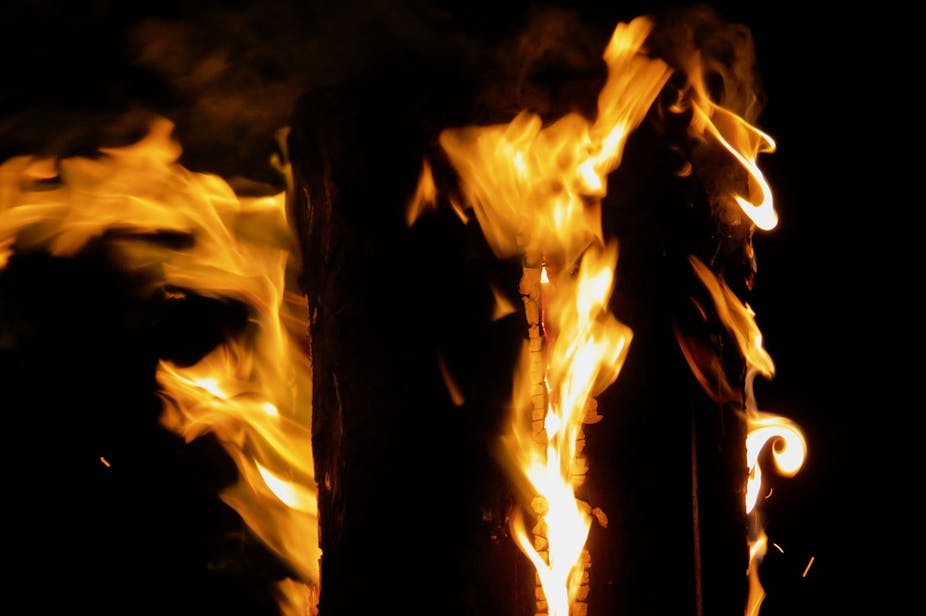Ghana’s informal urban markets play a key role in the country’s economy. They employ more than 80% of the people who work in the informal sector. They create livelihoods for traders, give urban residents access to essential household products, and add value to the culture of urban life.
Most market traders rely on credit from financial institutions, family and friends. Few have insurance. Without insurance, traders are left vulnerable to fire disasters, as urban markets are prone to fire outbreaks.
There are no statistics on the number of fires that have gutted markets in Ghana. That’s because the numbers fall under the Ghana National Fire Service’s classification of commercial fires. In 2022 there were 986 recorded commercial fires in Ghana.
Urban market fires in the informal sector have received relatively little attention from local governments compared to flood disasters. And research shows that local government authorities have failed to include fire risk in their urban management and development plans.
Our study showed that risk communication is an important part of fire disaster management. Providing adequate information on fire risks is crucial in disaster prevention and response. But effective fire risk communication requires that authorities engage regularly with communities. In this case, traders. It must do so in a way that draws on community knowledge and practices.
Risk communication in informal urban markets
We did our research in the Makola and Nima markets in Accra, Ghana’s capital city. The Makola market is large, having more than 35,000 traders and hawkers. It was established in 1924 and has grown in an unregulated way. The Nima market is much smaller but has also grown haphazardly in a slum area.
The selection of these two markets enabled us to compare and understand socio-cultural factors affecting fire risk communication.
We combined interviews and focus group discussions with market women, executives of traders’ unions, and officials of the Ghana National Fire Service, the National Disaster Management Organisation, and the Regional Coordinating Council.
One of our key findings was that informal traders lose trust in the authorities when they fail to keep the promises made after previous fire disasters. This leads to traders’ distrust of risk communication information and actions by authorities.
In addition, fire risk communication by the authorities has been ineffective because of limited engagement between traders and city authorities. Traders told us that a continuous relationship with officials of the Accra Metropolitan Assembly would have helped reduce market fires.
There was also the issue of language, which hampered effective fire risk communication. Some traders said that most radio discussions on fire risks and hazards were conducted in languages they did not understand. For instance, in the Nima market, which is dominated by traders from northern Ghana and neighbouring west African countries, the traders mentioned that fire risk communication was delivered by traders’ association executives mostly in English and other southern languages. Traders weren’t proficient in these. Obviously, being unable to understand a particular language affects the ability to comprehend a message.
Religious beliefs also contributed to the way traders perceived fire risk communication messages. Some traders attributed fire outbreaks to the wrath of God on some traders due to perceived corrupt trading activities or punishment for moral failures.
Top-down approach doesn’t work
Our research shows that top-down risk communication involving authorities has been ineffective in reducing disasters. Research shows that communication is most effective when it involves authorities and residents at risk or affected by disasters.
This allows for the development of communication strategies that are embedded in the cultures and environments of the communities.
Each community’s culture contains strategies and practices for dealing with disasters. Tapping into this makes risk communication more effective and builds social resilience. It shapes a community’s perception of risks.
Our findings point to issues which city authorities and disaster management institutions should consider when planning communication on fire risks in informal urban markets.
Firstly, they should incorporate traders’ circumstances in all communication plans. They should also work within each market’s existing social structures, including traders’ associations. Trust is crucial - so disaster management agencies must respond to the needs of traders and, most importantly, live up to their responsibilities and promises.
To be effective, fire risk communication strategies must not only be supported by formal institutions such as government agencies but also be rooted in and sensitive to each market’s socio-cultural dynamics and networks.
Stephen Leonard Mensah, graduate research assistant at the University of Ghana, is a contributing author

